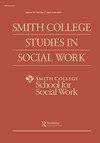Trauma-Informed Clinical Practice with Clients with Suicidal Thoughts and Behaviors
IF 0.9
Q2 SOCIAL WORK
引用次数: 2
Abstract
ABSTRACT In 2020, almost 46,000 individuals in the United States died from suicide, 1.2 million adults made a suicide attempt, and 12.2 million had serious suicidal thoughts. Clinicians in diverse practice settings will work with clients experiencing suicidal thoughts and behaviors. Due to a strong association between trauma and suicidality, suicidology experts have recommended the use of trauma-informed practice when working with clients with suicidal thoughts and behaviors. However, although there are guidelines for trauma-informed care and for working with clients with suicidality, there are no models, explanations, or discussions about how clinicians can provide trauma-informed care in their work with individuals with suicidal thoughts and behaviors. This conceptual paper describes examples of the application of the Substance Abuse and Mental Health Services Administration (SAMHSA)’s trauma-informed care principles to clinical work with individuals with suicidal thoughts and behaviors. Strategies are provided for each of the guiding principles, and case examples used to illustrate strategies, barriers, and potential pitfalls.有自杀想法和行为的病人的创伤知情临床实践
2020年,美国有近4.6万人死于自杀,120万成年人有自杀企图,1220万人有严重的自杀念头。临床医生在不同的实践设置将工作与客户经历自杀的想法和行为。由于创伤和自杀之间的强烈联系,自杀学专家建议在与有自杀想法和行为的客户一起工作时使用创伤知情实践。然而,尽管有关于创伤知情护理和与有自杀倾向的客户一起工作的指导方针,却没有关于临床医生如何在与有自杀想法和行为的个人一起工作时提供创伤知情护理的模型、解释或讨论。这篇概念性的论文描述了药物滥用和精神健康服务管理局(SAMHSA)的创伤知情护理原则应用于有自杀想法和行为的个人临床工作的例子。为每个指导原则提供了策略,并提供了用于说明策略、障碍和潜在缺陷的案例示例。
本文章由计算机程序翻译,如有差异,请以英文原文为准。
求助全文
约1分钟内获得全文
求助全文
来源期刊

SMITH COLLEGE STUDIES IN SOCIAL WORK
SOCIAL WORK-
CiteScore
1.50
自引率
10.00%
发文量
10
期刊介绍:
Smith College Studies in Social Work focuses on the vital issues facing practitioners today, featuring only those articles that advance theoretical understanding of psychological and social functioning, present clinically relevant research findings, and promote excellence in clinical practice. This refereed journal addresses issues of mental health, therapeutic process, trauma and recovery, psychopathology, racial and cultural diversity, culturally responsive clinical practice, intersubjectivity, the influence of postmodern theory on clinical practice, community based practice, and clinical services for specific populations of psychologically and socially vulnerable clients.
 求助内容:
求助内容: 应助结果提醒方式:
应助结果提醒方式:


